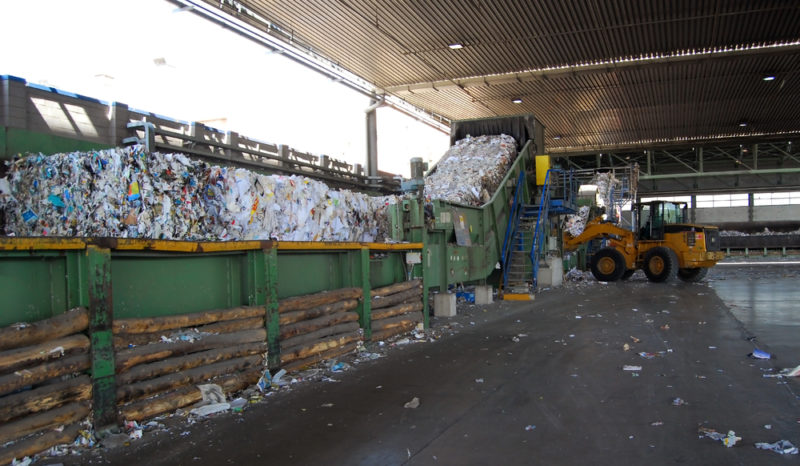Despite our attempts to take responsibility for recycling, the true value of recyclable materials is not being realised.
Cross-contamination of plastics and dirty packaging means that over half of the items going into the recycling bin aren’t recycled.
Recyclable materials are very valuable in their pure state but the cost and difficulty of separating mixed recycling make it uneconomical. Aldous Hicks, CEO and Co-founder of ReCircle Recycling Ltd explains that with mounting public and government pressure, something needs to change in order to stem the tide of used packaging and products going to landfill.
With a dumpster rental service, you will have constant access to recycling dumpsters, and you will be able to dispose of all trash without any fuss. If you are keen to Rent Roll Off Dumpsters, all you need to do is call or order online. With the internet, the process is easier than ever before and recycling is made simple and fast.
Closed-loop Recycling
Currently, when used-materials are recycled, they tend to be made into ‘lesser’ products. A plastic bottle may be processed into packing tape which is then disposed of in landfill.
A truly green initiative would be to move towards a 100% closed-loop recycling system, where a recyclable product is transformed back into its original form: a plastic bottle remade into a plastic bottle or an item of equal value many times before its disposed of.
Separating mixed plastics, however, is difficult and expensive and a tiny amount of the wrong type of plastic can cause an entire batch to become contaminated.
While I think we will get to a 100% closed-loop recycling system, there are a number of other technologies and processes that need to be implemented before closed-loop recycling is achievable.
Extended Producer Responsibility
We predict that within 10 years, the businesses will be able to deliver on their extended producer responsibility (EPR).
This means that all product prices will include the environmental costs of used-packaging being sent to landfill. If the product’s used-packaging is identified and closed-loop recycled the EPR will be delivered. EPR will incentivise more sustainable production practices, product longevity and maximise close-loop recyclability.
Within 20 years, we predict that there will be a closed-loop recyclability index (CLR) displayed on every product, indicating both the sustainability of the manufacturing process and the cash value of the packaging once recycled. Just like ingredient contents in food, the CLR will influence a consumer’s purchasing decision.
This in turn will help promote the growth of the de-manufacturing industry. By 2039, the de-manufacturing economy will approach the same level of employment as the financial services industry and will employ as many designers and robot operators as the manufacturing industry.
Consumer Power
Recent documentaries, such as the BBC’s Blue Planet II, have demonstrated just how far we still have to go with our recycling and many people now no longer trust curbside collection.
The simple answer is to let the public take a more active part in the recycling process. Instead of confusedly separating items, consumers should be empowered to guarantee 100% correct segregation of different plastics, for example, and ensure they are delivered to manufacturers in a pure form, ready for closed-loop recycling.
In fact, by delivering high-purity materials back to manufacturers, consumers could benefit directly from the high value of these materials. Government schemes encouraging the purchase of recycled materials will assist further.
This is where technological innovations, like ReCircle, will play a major role. ReCircle is an appliance for home or business that will use a sensor to identify and guarantee the correct separation of different plastic, glass, metal, etc. The appliance will then wash and grind the materials for separate storage in the base. The high-purity materials are then picked up and the consumer reimbursed for the weight of recycled materials.
Such appliances are a key step towards achieving 100% closed-loop recycling and help empower households and businesses to make purchasing decisions which take into account the product’s life cycle assessment and closed-loop recyclability.
Technological Innovations
Currently, sensors are relatively expensive because they can sense multiple substances. Exception sensors, detecting one substance only, will be smaller, simpler and when mass-produced very much cheaper.
Next, we need to reduce the size of the grinding, granulating and compacting equipment. Smaller equipment means more compact appliances allowing consumers to process their recycling in their own home or business.
With closed-loop recycling at home, the current efficient home delivery and pick-up services will be adapted to include bespoke equipment that will individually empty and weight each of the separately stored recycled products.
On-demand home delivery and pick-up services have improved in performance and cost, due to systems developed by companies like Amazon and Uber. The application of this technology and processes to on-demand recycling collection will delivered lower costs and therefore greater value to closed-loop recycled products.
In 20 years’ time, recycling appliances and equipment will be an intrinsic part of our daily lives both at home and at work.
ABOUT THE AUTHOR
Aldous Hicks is the CEO and Co-founder of ReCircle Recycling Ltd. Aldous has over 30 years of business experience as a technology and software developer, project manager and mechanical engineer, including developing water and material recycling technology. He developed SOHO custom PC database software and prior to that worked with Mannesmann Demag AG, a multinational German mechanical heavy engineering company.Aldous has now turned his attention and expertise to the recycling economy, founding ReCircle to create a solution that will empower consumers while reversing the unsustainable and inefficient recycling system.


